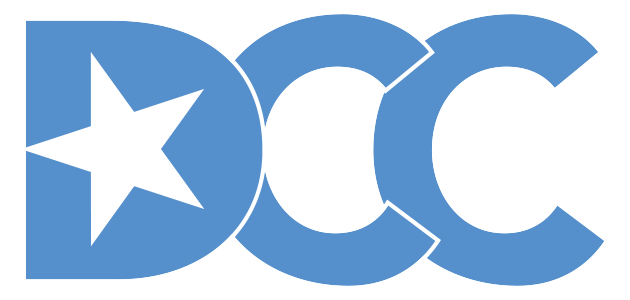Frequently Asked Questions
- What is the difference between the S. John Davis Career Center and Pulley Career Center?
There is no difference. Both Centers offer the same educational curriculum and opportunities for students. - Is Davis a post-secondary placement?
No. The Davis Center is part of the FCPS continuum of special education services. - What school schedule/calendar is followed?
Davis is an FCPS school and operates on a regular FCPS calendar, including holidays. - How will a student get to/from the Centers?
Transportation will be arranged by Davis. Students are transported from home to the Davis each morning and from the Davis to their home each afternoon by FCPS school buses - How do students get to their jobsites?
Students travel to their job-sites via FCPS buses. - How does FCPS determine which career center a student will attend?
- Davis and Pulley are “sister schools.” The Office of Transportation maintains the Pulley/Davis boundaries.
- The home address determines which Center serves that student.
- Can students take medication during the day?
Yes. Davis follows the FCPS guidelines for medication administration (prescribed or over-the-counter). Individual arrangements are made for students who require medication while on the job-site or when going out into the community. - Can students use their lunch account while attending the Centers?
Yes. Davis will coordinate with Food Services to have the student’s lunch ID transferred from their previous school. - What population of students do the Centers serve?
Davis serves students with all exceptionalities aged 18-22 years who require instruction through a modified curriculum focused on life skills and career skills and have completed their academic coursework/high school experience. - What are the components of a student referral to the Davis Center?
- Students, parents, and referral sources should tour the Davis Center.
- The referral source, typically your school’s ETR, will submit a referral packet to the Davis Center.
- The student may be asked to complete a situational assessment on one of the Career Center’s teams and/or a Davis representative will observe the student at their current job site placement in order to gather information about the student in a community job setting.
- The student’s IEP team convenes, with Davis representation, to review student needs and determine placement.
- Will my student continue to have an IEP?
Yes. Students continue to have an annual IEP and triennial reevaluation. - How is placement at a career center determined?
The IEP team may determine that the student requires the services provided at a special education career center based on IEP goals and objectives, and need for employment and independent living skills instruction as evidenced by his/her IEP. - Do students who attend the Centers receive ESY Services?
ESY services are determined by a student’s IEP team. Direct ESY services are provided at school sites determined by FCPS. ESY services are not provided at Davis. - What happens if a student has a related service on their IEP?
Students attending the centers will continue to receive the related services as indicated on their current IEP. - Does Davis provide ESOL services?
Yes. - Does your curriculum include instruction in academics?
Students receive instruction in career skills and independent living skills. Students receive instruction in numeracy and literacy as they relate to employment, budgeting, maintaining and/or writing a resume and filling out job applications, etc. In addition to independent living skills instruction, students receive instructed in career skills which include the areas of workplace behavior, communication, self-advocacy, and specific job related tasks. - Do students stay on the same team each year?
Students are moved to a new work-site annually. - 20. How does Davis determine a student’s community work experience placement?
Input is secured from the student, teacher and parent regarding a student’s areas of interest and independence. The input is shared by the teacher(s) with the Principal, Employment and Transition Representative, and Department Chair. Schedule and team determination are made at that time by school personnel. - Are students allowed to return to their base school to participate in graduation exercises?
Yes, if a student has not already participated in graduation at his/her base school. - For how long can a student remain at Davis?
Students may continue to access services through FCPS until their age out year. - Do students earn certification in the areas they receive training in?
No. Davis is not a trade school. The program is designed to provide real-life work experiences as a tool to strengthen a student’s set of soft skills (workplace behaviors, communication, etc.) necessary to maintain employment. - Are students paid?
No, the various job-sites are not paid positions. Our work-sites follow the unpaid work experience model. These sites provide students with multiple opportunities to train in a real-life work environment, alongside non-disabled peers. Students are provided with the opportunity to build employability and career skills. Students are working on parts of a job alongside employees and are not completing work that replaces that of a business’s paid employees. - Does the Davis Center find paid employment for their students?
While a student is attending the Davis Center, our focus is to provide career and independent living skills training/opportunities. If a student is interested in pursuing employment outside of the school day, we can provide job leads (as available), assist students in completing job applications, and assist students who will be utilizing the public transit system with planning their transportation route. In their transition year our ETR will work closely with transitioning families to look at employment opportunities and available job supports to be utilized after they complete the Davis Center. Each situation is different and options and services will be discussed at the transition meeting in the fall of the student’s transition year.
